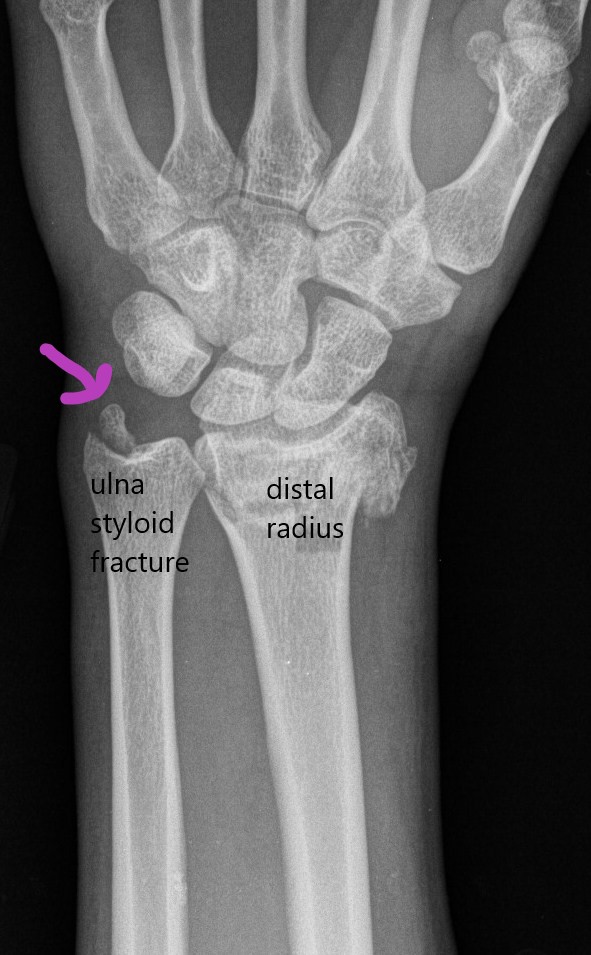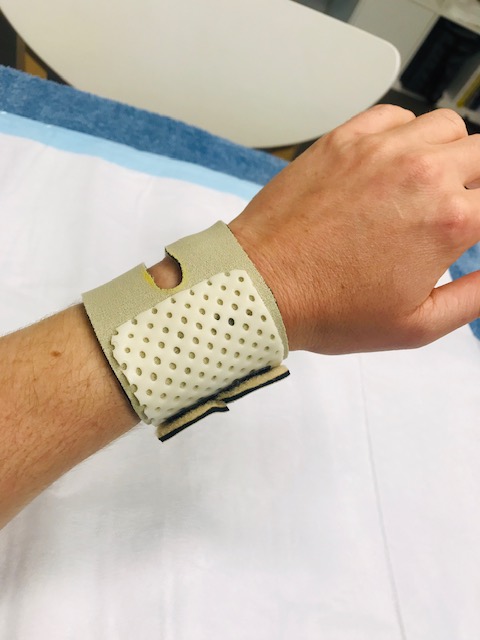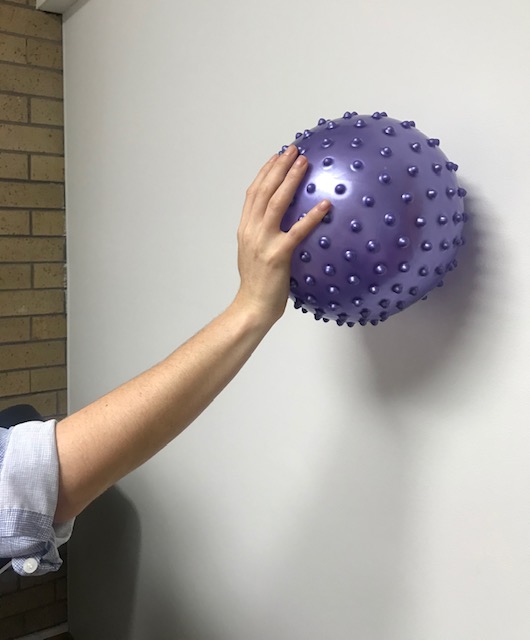Injuries to our wrists are common, and as was mentioned in a previous blog on distal radius fractures, ligaments are also commonly injured with a fall or with a heavy twisting or lifting motion.
The triangular fibro cartilage complex, also known as TFCC is a very important group of ligaments which are designed to provide stability to our wrist and to enable smooth and controlled movement, particularly with rotation of the wrist and forearm.

TFCC injury can be as a result of a traumatic injury such as a fall or with a heavy rotation or twisting force to the wrist.
Pain and injury to the TFCC can also be degenerative in nature; known as a “wear and tear” injury through repetitive or heavy manual work.
Following a fracture to your wrist, the TFCC can be affected and because injury to our ligaments do not show up on xray they can sometimes get missed.
If you sustain a fracture to not only your distal radius, which is very common, but to your ulna styloid as well (as pictured below), it can commonly affect or disrupt your TFCC as this is where these ligaments attach.

Symptoms of TFCC injury usually involve swelling to the ulnar side of the wrist, pain, particularly with rotating the wrist, decreased grip strength and reduced movement in your wrist.
The therapists at Geelong Hand Therapy are skilled in specific assessments and tests that can isolate and diagnose ligament injuries to the wrist, including TFCC injuries.
Treatment of TFCC injury can include:
- Custom splint fabrication to support and immobilise the wrist
- Pain management modalities and swelling management
- An individually tailored exercise program to address issues relating to movement, strength and proprioception of the wrist and arm


Should an injury not respond to therapy alone or if the injury is initially assessed as being severe, your hand therapist will guide you through the process of seeking a surgical opinion or gaining further investigations.
TFCC injuries that go untreated can result in a persistently painful wrist that can lead to wrist instability and further problems with degeneration and reduced functional use of the hand. If in doubt, or if you know of someone who may be experiencing a ligament injury get it seen to earlier rather than later!
